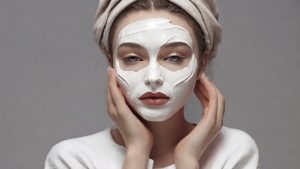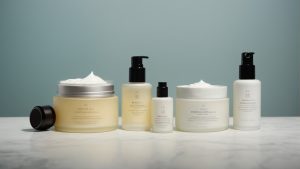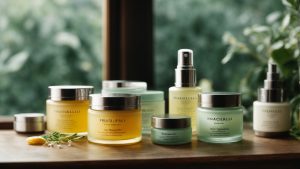“Gentle Solutions: Effective And Powerful Acne Treatment for Sensitive Skin”
Introduction:
Dealing with acne is challenging, and when you have sensitive skin, finding the proper acne treatment for sensitive skin can be even more daunting. Sensitive skin requires a delicate approach to avoid irritation while addressing acne concerns. This article will explore gentle and proven acne treatments for sensitive skin. So very thank you, and please start with joy me life.
Understanding Sensitive Skin:
Selecting skincare products and treatments with utmost care is essential for sensitive skin, which tends to experience redness, itching, and inflammation. Regarding acne treatment for sensitive skin, harsh chemicals, and abrasive ingredients can exacerbate sensitivity, leading to more skin issues.
-
What is the best treatment for acne on sensitive skin?
- Use a gentle, fragrance-free cleanser.
- Apply a non-comedogenic and hypoallergenic moisturizer.
- Choose skincare products with minimal ingredients.
- Use a mild, alcohol-free toner.
- Incorporate a topical treatment with benzoyl peroxide or salicylic acid, but start with lower concentrations.
- Avoid harsh exfoliants and abrasive scrubbing.
- Protect your skin with a broad-spectrum sunscreen.
Gentle Cleansing:
Begin your acne treatment for sensitive skin routine with a mild, fragrance-free cleanser designed for sensitive skin. Explore components such as chamomile or aloe vera, renowned for their calming attributes. Perform a gentle facial cleansing routine twice daily to eliminate surplus oil, impurities, and makeup, preserving your skin’s innate moisture balance.
-
Mild Formulas:
Gentle cleansers use mild, non-irritating formulas without harsh chemicals or fragrances to clean the skin. Skincare formulas prioritize excluding harsh chemicals, minimizing or eliminating fragrance to prevent irritation, and incorporating gentle detergents to effectively cleanse without compromising the skin’s natural balance. These formulations are particularly beneficial for individuals with sensitive skin, aiming to provide a gentle and soothing skincare experience.
-
Balanced pH:
These cleansers maintain the skin’s natural pH balance to preserve the protective barrier and prevent dryness or sensitivity.
-
Moisturizing Ingredients:
Some gentle cleansers include moisturizing elements to hydrate the skin during cleansing in acne treatment for sensitive skin, ensuring it doesn’t feel tight or dry afterward.
-
Suitability for Sensitive Skin:
Gentle cleansing is often recommended for individuals with sensitive skin or conditions like eczema, as it is less likely to irritate.
-
What is the best treatment for eczema?
- Moisturize regularly with a fragrance-free cream or ointment.
- Use mild, unscented soap and avoid hot water when bathing.
- Identify and avoid triggers, such as certain foods or irritants.
- Apply topical corticosteroids as prescribed by a healthcare professional.
- Use non-prescription creams like hydrocortisone for mild cases.
- Consider phototherapy under medical supervision.
- Consult a dermatologist for personalized treatment options.
Summary: Gentle cleansing involves using mild, pH-balanced formulas with moisturizing elements, making it suitable for acne treatment for sensitive skin. The goal is to clean effectively without stripping the skin’s natural moisture, promoting a healthy, irritation-free complexion.
Non-Comedogenic Moisturizers:
Hydration is essential, even for acne-prone sensitive skin. Opt for non-comedogenic moisturizers that won’t clog pores. Ingredients such as hyaluronic acid or glycerin provide hydration without causing breakouts. Moisturizing regularly helps maintain a healthy skin barrier and reduce sensitivity, and is very important to acne treatment for sensitive skin.
-
Low Risk of Clogging Pores:
Non-comedogenic moisturizers are formulated with ingredients with a low likelihood of clogging pores. This helps prevent the formation of comedones (blackheads and whiteheads) and reduces the risk of acne breakouts on sensitive skin.
-
Suitable for Various Skin Types:
These moisturizers cater to many skin types, ensuring suitability for a diverse spectrum, including oily and acne-prone sensitive skin. They provide hydration without adding excess oil to the skin, making them ideal for individuals concerned about blemishes and clogged pores.
-
Lightweight Formulas:
Non-comedogenic moisturizers often have lightweight and easily absorbed formulations. This ensures the moisturizer effectively hydrates the skin, leaving it feeling light and non-greasy, ensuring a comfortable daily-use experience.
-
May Include Skin-Friendly Ingredients:

Many non-comedogenic moisturizers incorporate hyaluronic acid, glycerin, and other humectants that attract and retain moisture. Additionally, they may contain soothing elements. Incorporate the soothing and nourishing properties of ingredients like aloe vera or chamomile for a skin-revitalizing experience.
Summary: Non-comedogenic moisturizers are formulated to provide adequate hydration without clogging pores, making them suitable for various skin types, including those prone to acne. These moisturizers typically have lightweight and easily absorbed formulas, often including skin-friendly ingredients contributing to overall skin health. Choosing a non-comedogenic moisturizer can be beneficial for maintaining well-hydrated and balanced skin while minimizing the risk of breakouts on sensitive skin and pore congestion.
what’s a simple DIY face mask for sensitive,acne-prone skin?
Soothing Honey and Oatmeal Mask:
Ingredients:
- Two tablespoons of colloidal oatmeal
- One tablespoon of raw honey
Instructions:
- Mix colloidal oatmeal and raw honey until you get a smooth paste.
- Apply the mixture evenly to clean, dry skin.
- Keep the mask on for a duration of 15 to 20 minutes,
- Gently purify your facial skin by washing it with lukewarm water, then softly pat it dry using a fresh, clean towel.
Benefits:
- Colloidal oatmeal helps to soothe and calm irritated skin.
- Raw honey has antibacterial properties and can aid in healing acne.
- This mask provides gentle exfoliation without being harsh on sensitive skin.
Remember to apply the mask to your entire face; it’s advisable to conduct a patch test to confirm the absence of any unfavorable reactions. If you know the ingredients’ allergies, avoiding this mask is best.
Spot Treatments with Calming Agents:
For targeted acne treatment for sensitive skin, choose spot treatments containing calming agents like tea tree oil or chamomile. These ingredients possess anti-inflammatory properties that help soothe irritated skin while combating acne-causing bacteria. Apply sparingly to affected areas as part of your nighttime routine.
-
Calming Ingredients:
Spot treatments with calming agents often contain ingredients such as chamomile, aloe vera, calendula, or green tea extract. Renowned for their calming and anti-inflammatory attributes, these components alleviate redness and irritation linked to blemishes.
-
Antibacterial Properties:
Besides calming effects, many spot treatments include ingredients with antibacterial or antimicrobial properties, like tea tree oil or salicylic acid. This helps address the underlying causes of acne on sensitive skin by targeting bacteria and preventing further breakouts.
-
Non-Drying Formulas:

Unlike some harsher acne treatments for sensitive skin, spot treatments with calming agents strive to be non-drying. They aim to alleviate inflammation without overly drying out the surrounding skin, striking a balance to promote healing without causing additional irritation.
Summary: Spot treatments with calming agents leverage ingredients known for their soothing and anti-inflammatory properties to address localized skin issues. Combining calming agents with antibacterial properties, these treatments reduce redness, irritation, and breakouts while maintaining the skin’s moisture balance. The emphasis on non-drying formulas ensures effective acne treatment for sensitive skin without causing additional harm to the skin.
Chemical Exfoliants:
Gentle chemical exfoliants, such as alpha hydroxy acids (AHAs) or beta hydroxy acids (BHAs), can benefit acne on sensitive skin. These exfoliants help unclog pores, remove dead skin cells, and promote cell turnover without the abrasive effects of physical exfoliants. Begin with a low concentration and gradually increase if your skin tolerates it well. Also, you can read more about this in the best skincare routine for oily skin.
Minimalist Approach:
Less is often more when it comes to sensitive skin. Avoid using too many products simultaneously; this has the potential to inundate the skin, resulting in irritation. Stick to a simplified routine focusing on essential ingredients that address acne on sensitive skin without compromising skin sensitivity.
-
Simplified Routin Acne Treatment for Sensitive Skin :

A minimalist skincare approach involves streamlining your skincare routine by focusing on essential products. This typically includes a gentle cleanser, a moisturizer, and a broad-spectrum sunscreen. The goal is to avoid unnecessary and potentially irritating ingredients.
-
Fewer Products, Better Ingredients:
Instead of using many products, a minimalist approach emphasizes quality over quantity. This involves choosing products with effective, well-researched ingredients that address specific skin concerns without overloading the skin with numerous active compounds.
-
Emphasis on Skin Health:
Minimalism in skincare is about reducing the number of products and promoting overall skin health. This includes adopting habits like staying hydrated, protecting the skin from sun damage, and being mindful of lifestyle factors that can impact the skin, like maintaining a well-rounded nutritional intake and ensuring sufficient rest.
Summary: A minimalist approach to skincare, especially when acne treatment for sensitive skin, involves simplifying your routine to focus on essential, high-quality products. It emphasizes the importance of using effective ingredients specifically chosen for their gentleness, avoiding unnecessary additives, and promoting overall skin health through mindful habits. This approach is tailored to individual skin needs, addressing acne without causing excess and potential irritation.
Consult a Dermatologist:
When dealing with sensitive skin and persistent acne issues, it’s advisable to consult a dermatologist. A professional can assess your skin’s needs and recommend targeted treatments or prescription medications, if necessary, for acne treatment for sensitive skin.
Conclusion:
Managing acne on sensitive skin requires a thoughtful and gentle approach. Regarding acne treatment for sensitive skin, choosing suitable products and following a consistent routine is crucial. By doing so, individuals can effectively address acne concerns without compromising their skin’s delicate balance. Patience is vital, and clear and healthy skin is within reach with the right treatment plan.







